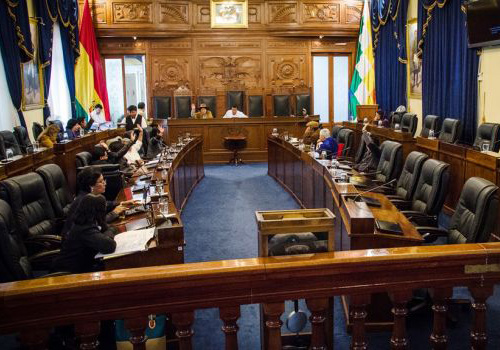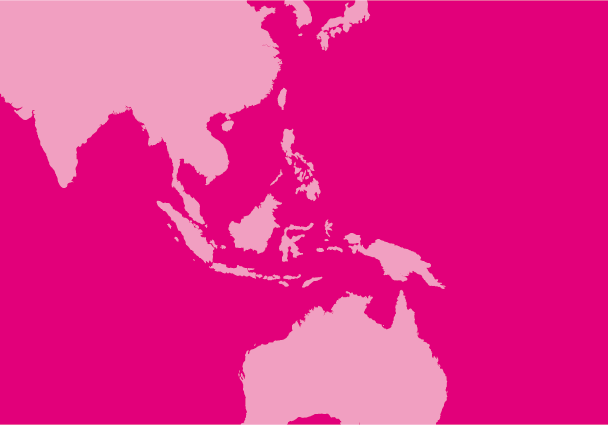
Jul 13, 2015 | News
The ICJ today condemned the approval by the Cambodian Peoples’ Party (CPP) of a law which aims to pose obstacles to and restrictions on the activities of non-governmental organizations (NGOs) in order to be officially registered in the country.
In June and July 2015, the ICJ and other international human rights groups sent joint letters to the Government of Cambodia, including to Prime Minister Hun Sen and the President of the National Assembly, urging for the withdrawal of the draft law.
“It is extremely disappointing that the Government has chosen to ignore widespread national and international criticism of the draft LANGO and calls for it to be withdrawn,” said Kingsley Abbott, International Legal Adviser for the ICJ.
“There is no doubt that the draft law’s restrictions on freedom of association and expression, in contravention of international law and standards, will severely impair civil society’s ability to carry out its vital work,” he added.
Today, the Cambodian National Assembly unanimously approved the draft Law on Associations and Non-Governmental Organizations (draft LANGO) promoted by the Cambodian Peoples Party (CPP) after 55 members of the opposition party, Cambodia National Rescue Party, decided to boycott the vote.
All 68 members of the CPP, including Prime Minister Hun Sen, attended the plenary session of the National Assembly and voted in favor of the draft law.
The draft LANGO will still have to be adopted by the Senate, and thereafter, receive the assent of the Cambodian King before it becomes law.
The ICJ calls on the Senate to reject the draft LANGO.
“The fact that the legislation was passed without genuine consultation with civil society tends to suggest that the Government’s intention is to weaken the impact of NGOs, including human rights defenders,” Abbott said.
The draft law’s most problematic provisions include:
- excessive documentation required for the registration of both domestic and international associations and NGOs;
- arbitrary powers of the Ministry of Interior and Ministry of Foreign Affairs to deny or revoke registration on the grounds of “public security, stability and order, or generate a threat to national security, national unity or the culture, traditions and customs of Cambodian national society”;
- the requirement that associations “adhere to a stance of neutrality vis à vis political parties”, and provisions that allow for the suspension and dissolution of groups that violate this requirement;
- the requirement that NGOs report to several ministries and to submit an annual report summing up work activities and finances; and
- the inclusion of sweeping provisions for the suspension and dissolution of domestic and international associations and NGOs.
Background
The draft LANGO, if ultimately adopted and implemented, would bring Cambodia into non-compliance with international law and standards.
As a party to the International Covenant on Civil and Political Rights (ICCPR), Cambodia must guarantee the rights to freedom of expression and association and ensure that no restrictions are put in place except under the strict conditions set out in articles 19(3) and 22(2) of the ICCPR. These conditions clearly have not been met under the terms of the draft LANGO.
In addition, Article 2 of the UN Declaration on Human Rights Defenders provides that each “State has a prime responsibility and duty to protect, promote and implement all human rights and fundamental freedoms, inter alia, by adopting such steps as may be necessary to create all conditions necessary in the social, economic, political and other fields, as well as the legal guarantees required to ensure that all persons under its jurisdiction, individually and in association with others, are able to enjoy all those rights and freedoms in practice.
Article 8 states that everyone “has the right, individually and in association with others, to have effective access…to participation in the government of his or her country and in the conduct of public affairs…[including] the right, to submit to governmental bodies and agencies and organizations concerned with public affairs criticism and proposals for improving their functioning and to draw attention to any aspect of their work that may hinder or impede the promotion, protection and realization of human rights and fundamental freedoms.”
Contact:
Kingsley Abbott, ICJ’s International Legal Adviser, t: +668 4092 3575 ; e: kingsley.abbott(a)icj.org
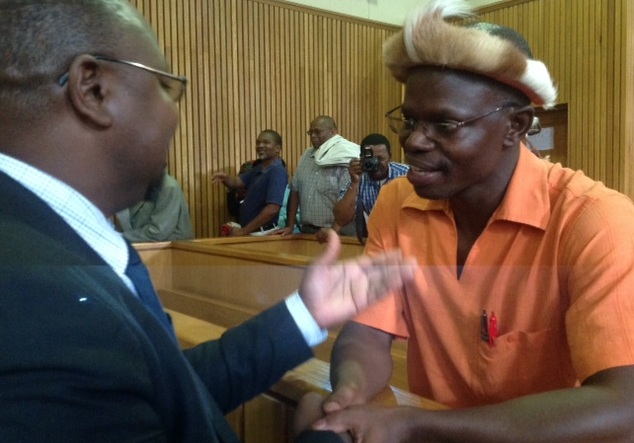
Feb 17, 2015 | News
Alleging a range of human rights violations by Swaziland in the cases of Thulani Maseko and Bheki Makhubu, leading legal advocates today filed a petition with the UN Working Group on Arbitrary Detention (UNWGAD) in Geneva.
The American Bar Association’s Center for Human Rights, the global law firm Hogan Lovells and the ICJ jointly produced a petition calling for the UNWGAD to issue an opinion regarding the lawfulness of the continued incarceration of Thulani Maseko, an internationally recognized human rights lawyer and feature writer for The Nation magazine.
“The consequences of this arbitrary action against Thulani Maseko have not only violated his rights and exacted a heavy personal toll, but have also highlighted the rule of law deficit in Swaziland,” said Wilder Tayler, ICJ’s Secretary General. “Thulani Maseko has been denied his right to express an opinion on public affairs and the administration of justice, guaranteed under international law and affirmed in the UN Basic principles on the Role of lawyers.”
Thulani Maseko and journalist Bheki Makhubu were charged with two counts of contempt of court emanating from articles published in February and March 2014, in which they questioned circumstances surrounding the arrest of a government vehicle inspector.
They were sentenced to two years of imprisonment, without the alternative option of a fine at the end of a trial largely condemned by leading international rights groups as unfair and not complying with international standards on the right to a fair trial.
Some of the fair trial guarantees that have been breached, according to the legal petition filed with the UNGWAD, include the right to be tried by an independent and impartial tribunal; right to a public hearing; right to a legal counsel; right to the presumption of innocence; right to bail; and right to protection of the law.
“The use of contempt of court proceedings to suppress the right to freedom of expression is a violation of international human rights law,” said Marc Gottridge, partner at Hogan Lovells. “The right to freedom of expression is guaranteed in the Swazi constitution and international law, including treaties to which Swaziland is a party.”
“The general failings of the Swazi judiciary with respect to independence and impartiality makes it reasonable to conclude that there cannot be an effective domestic remedy for Thulani Maseko,” he added.
Contact:
Arnold Tsunga, Director, ICJ Africa Regional Programme, t +27 716 405 926 or +41 762 399 032, e arnold.tsunga(a)icj.org,
Matt Pollard, Senior Legal Adviser, ICJ, Centre for Independence of Judges and lawyers, t +41 22 979 38 12, e matt.pollard(a)icj.org
Marc Gottridge, Partner Hogan Lovells, t +1 212 918 3000, e marc.gottridge(a)hoganlovells.com
Ginna Anderson, Senior Counsel, Center for Human Rights, American Bar Association, t +1 202 442 3438, e ginna.anderson(a)americanbar.org
Background:
Thulani Maseko was arrested on 17th March 2014 following a warrant of arrest that was issued by the Chief Justice Michael Ramodibedi on his own motion.
This was after he had written an article titled “Where the Law Has No Place” criticising the courts for the way that a fellow Swazi citizen Mr Gwebu Bhantshana had been arrested and detained and the wider implications of that case on the rule of law in Swaziland.
Save for 3 days in April 2014 when he was released following Judge Mumcy Dlamini’s judgment declaring his arrest and detention wrongful and illegal, Thulani has been in custody since his initial arrest. Mr. Maseko was initially held at Sidwashini Correctional facility before he was taken to Big Bend Correctional facility, where he is currently lodged.
Further background material can be found here:
http://www.americanbar.org/news/abanews/aba-news-archives/2014/04/statement_of_jamesr.html
https://www.icj.org/swaziland-icj-condemns-the-harsh-prison-term-imposed-on-thulani-maseko-and-bheki-makhubu/
https://www.icj.org/swaziland-icj-condemns-the-conviction-of-celebrated-human-rights-lawyer-and-prominent-journalist-on-charges-of-contempt-of-court/
https://www.icj.org/swaziland-icj-concerned-at-detention-of-human-rights-lawyer-and-journalist/
Download the petition:
Swaziland-Maseko WGAD Petition-Advocacy-2015-Eng (full text in PDF)
The lawyers at Hogan Lovells US LLP who worked on this petition are Marc Gottridge, Dianne Milner, Allison Holt and Hans H. Hertell.
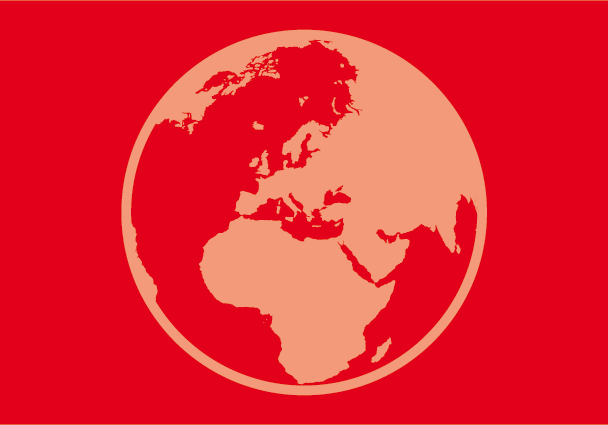
Sep 22, 2014 | Events, News
The ICJ’s Director of the International Law and Protection Programmes, Alex Conte, was today an expert member of a plenary panel of the UN Human Rights Council concerning the application of international law to the use of armed drones.
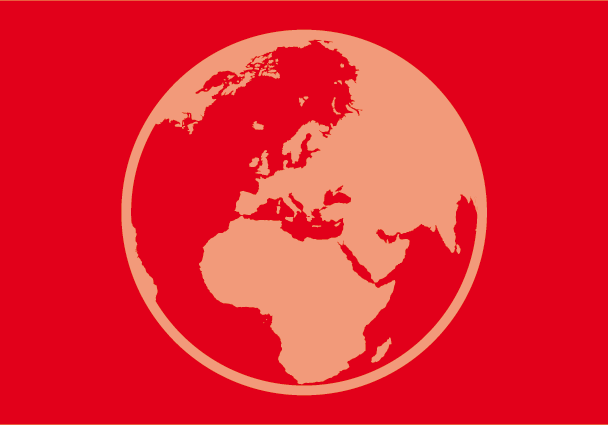
Sep 16, 2014 | Events
Amnesty International, with support from the ICJ, will hold a parallel event, in the margins of the UN Human Rights Council’s 27th session in Geneva, on armed drones and international law, to be held on Thursday 18 September 2014 at 13:30 in room XXIV of the Palais des Nations.



